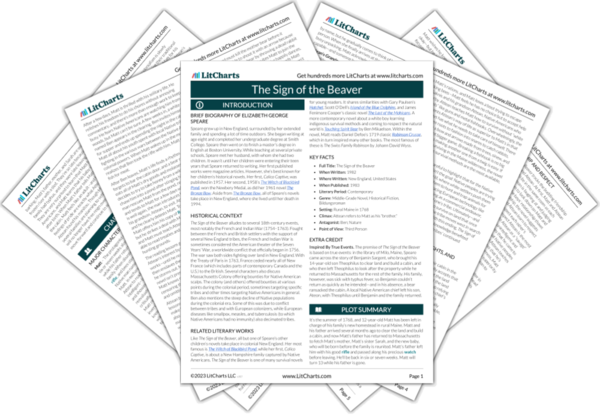On one hand, Matt acknowledges that it’s tragic that Saknis and his tribe have been pushed west thanks to settlers like him. There’s something profoundly sad about a town springing up where Saknis’s tribe has lived and hunted for generations. However, once again, Matt chooses not to think about these uncomfortable thoughts and focus on the future and caring for his family. With this, the novel ends highlighting that for as much as Matt learned from Attean, he isn’t fully willing or able to give up his settler mindset.
